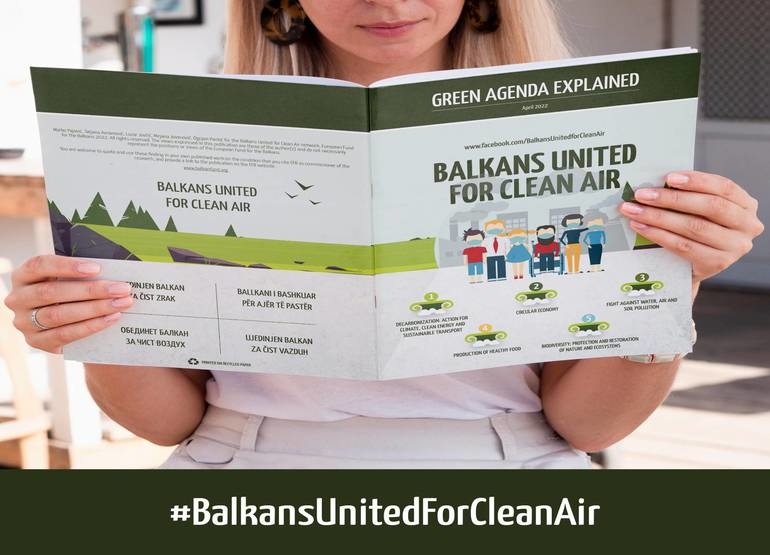
The wrap up of our regional Balkans United for Clean Air campaign is all about taking a closer look to the importance of the implementation of the Green Agenda for the Western Balkans , as a prerequisite for securing the different aspects of successful dealing with the consequences of the climate change.
Therefore, we are sharing the publication "Green Agenda Explained" in all the languages of the region, in order to inform the citizens on what does this mean on micro and macro level, and what concrete steps can be made in order to move the process forward to sustainable development, cleaner environement and better living conditions with less air and water pollution.
What is the Green Agenda for the Western Balkans?
To grasp the Green Agenda for the Western Balkans, we need to understand the European Green Deal. The latter is a long-term development strategy of EU countries, which aims to prevent climate change. We can already see the consequences of climate change in nature today, from the melting polar caps and glaciers, through the rapid rise of sea levels, to intense heat waves, emergence of new diseases and the mass extinction of various plant and animal species. The main culprit for these side effects that affect our environment is the emission of greenhouse gases, namely those that, like a blanket, retain heat in the Earth's atmosphere and thus warm the planet. Therefore, the main goal of the Green Deal is to achieve carbon neutrality by 2050, i.e. to completely neutralize the amount of greenhouse gases that we emit into the atmosphere.
In short, the Green Agenda for the Western Balkans is an instrument for achieving the European Green Deal in our region. The European Green Deal represents a milestone in fighting climate change and a comprehensive growth strategy of the Union, and its implementation should lead to the European Union’s climate neutrality by 2050. By signing the Sofia Declaration on the Green Agenda for the Western Balkans on November 10, 2020, the region’s countries committed to implementing the Green Agenda as a "road map" for a series of concrete actions and measures to lead to low-carbon development and economic growth in line with the principles of sustainable development. The Green Agenda for the Western Balkans covers five areas: climate, energy and mobility; circular economy; pollution prevention; sustainable agriculture and food production; and biodiversity.
More info on the above mentioned five areas can be found in the short publication Green Agenda Explained, which is also avaiable in all the WB6 languages.
Download them bellow:







